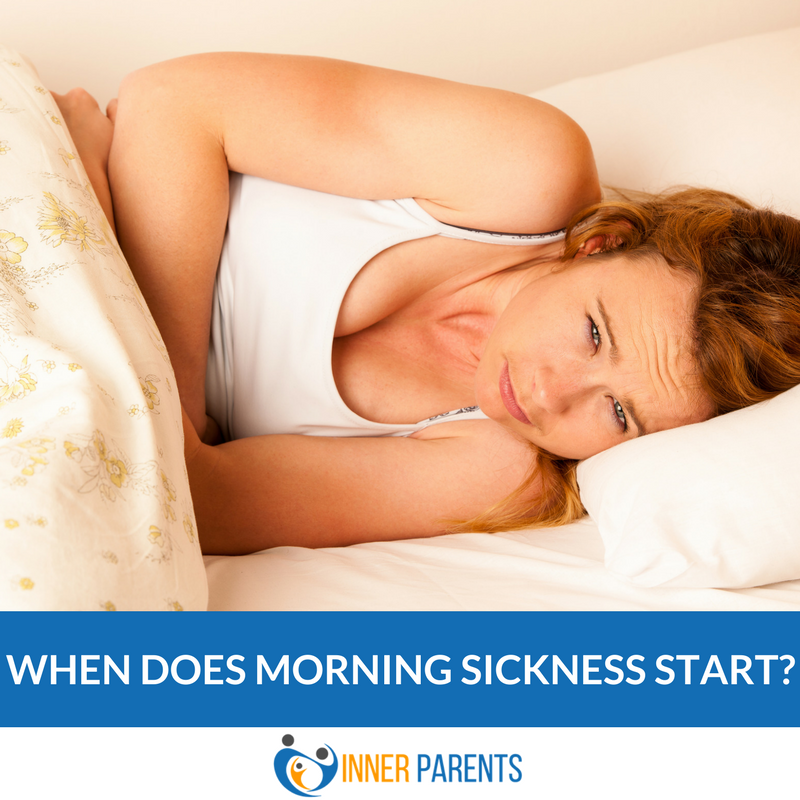When Does Morning Sickness Start?
You just found out that you were pregnant. Perhaps you were feeling a little sick already and took a pregnancy test and saw a positive result. For some women, morning sickness is one of the first signs that they are pregnant. However, for other women, morning sickness comes after they find out they are pregnant and other women do not have any morning sickness at all.
It is estimated that between seventy to eighty percent of pregnant women have some nausea during their first trimester. Nearly fifty percent of women who are pregnant experience vomiting during this time frame. Both nausea and vomiting may occur at any time during the day or the night, not just in the morning.
Common Time for Morning Sickness to Start
Most commonly, a woman will experience morning sickness during her fifth week of pregnancy. This is about a week or so after missing your first period. This is not the case for every woman, and each will have different experiences with morning sickness.
About thirteen percent of women will have some morning sickness before they miss a period. This can be one of the earliest signs that you are pregnant. For roughly ninety percent of those who have morning sickness during pregnancy, it begins by the time they are in their eighth week of their pregnancy.

How Long Will Morning Sickness Last
When you are at the beginning of your pregnancy and feeling quite ill, you may begin to wonder exactly how long morning sickness is going to last. While the time frame is different for everyone, you can expect the symptoms to become the most severe during the sixth week of pregnancy and then start to subside around the tenth week.
Morning sickness typically will begin quite suddenly, and for many women, it will gradually taper off. For about ten percent of women who are pregnant, the sickness will get worse after the ninth week.
What Morning Sickness Means
While feeling sick to your stomach for about a month is no fun, there is some good news. It has been found that morning sickness is a sign that you have a healthy baby. Women who experience nausea during the first few weeks of pregnancy have a third of a chance less of miscarrying than a woman who does not experience nausea. You also have a lower chance of going into preterm labor if you have morning sickness.
What if I Don’t have Morning Sickness
A woman who has morning sickness does have a lower chance of a miscarriage, not having morning sickness does not mean that your baby is not healthy. It also does not mean that you have anything to worry about as far as your baby. There is roughly twenty to thirty percent of women who do not experience any morning sickness, and they go on to have babies who are perfectly healthy.

What is the Likelihood of Having Morning Sickness?
Several factors can lead to having morning sickness. If you have been pregnant before, your chances are higher of having more severe morning sickness with each pregnancy.
Your ethnic background also plays a role in your chances of developing morning sickness and its severity. White women tend to be more prone to having nausea than Asian or black women. Black women have a higher probability of getting morning sickness after their first trimester.
If you are early on in the pregnancy and do not feel nauseous yet, do not worry as chances are that it is going to hit you within the next couple of weeks. The statistics for an increased miscarriage only go up after not experiencing nausea after the eighth week of your pregnancy.
According to the study conducted on pregnant women, as long as morning sickness symptoms started during your eighth week, it did not change the rate of miscarriages. Once your first trimester ends, having or not having morning sickness made no difference in the chance of losing a baby.
Causes of Morning Sickness?
There is no real explanation of what causes morning sickness in pregnant women. Some scientists believe that it has an evolutionary purpose, as it helps reduce the chance of a pregnant woman consuming food that is rotten.
It also could simply be a side effect of the increasing hormone levels you are experiencing. There has been some evidence that has shown that levels of hCG hormone play a role in morning sickness. Levels of hCG are at their highest around the eighth week of pregnancy, which is typically when morning sickness becomes the worst.
Pregnancy conditions that cause a woman to have a higher level of hCG such as molar pregnancies, down’s syndrome, or twins, typically will cause morning sickness that is more severe.
It is important to note that there are many variations of hCG levels in a healthy pregnancy, so the level of hCG is not an accurate prediction of whether or not you will have morning sickness.
In Conclusion
When it comes to morning sickness and when it starts, the truth of the matter is that it could begin at any time. Some women experience morning sickness early in their pregnancies while others tend to start feeling sick a bit later.
The severity of morning sickness is also varied. Some women are nauseous for just a few weeks while others experience these symptoms their entire pregnancy. However, generally speaking, morning sickness typically starts around the fifth or sixth week and will normally subside after the tenth week or so. Most women will not have morning sickness during their second trimester.
References:
https://www.ncbi.nlm.nih.gov/pubmed/2611170https://www.ncbi.nlm.nih.gov/pubmed/16879499https://www.ncbi.nlm.nih.gov/pubmed/16879499

